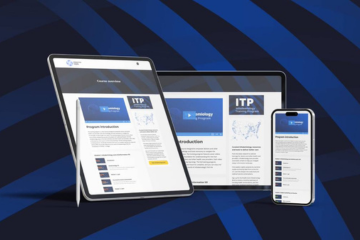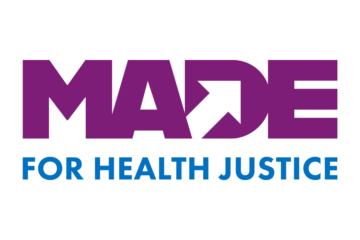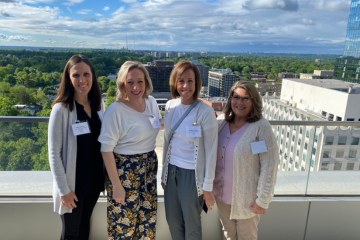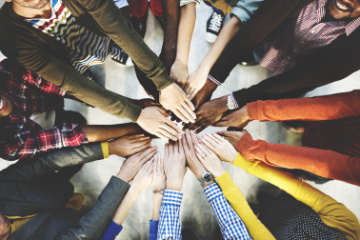Public health practitioners are stretched thin right now, and it’s nearly impossible to think beyond the hour-to-hour COVID-19 emergencies. But in the midst of this tragic and unprecedented crisis — with equipment shortages, dangerous working conditions for essential employees, and widespread human suffering — the public health field has a once-in-a-lifetime obligation to engage in a key health conversation: how vaccines can take us from fear to freedom.

Photo courtesy: Centers for Disease Control and Prevention
Too often, vaccine skeptics, not public health practitioners or healthcare workers, dictate the terms of our national conversation. They continue to push dangerous misinformation about the safety of vaccines, despite repeated debunking of these false claims. Some have also framed vaccinations as a medically imposed infringement on personal choice — an intervention that limits, rather than creates, liberty.
COVID-19 cuts through that fallacy.
How much personal choice do you feel like you have right now? The virus has confined many of us to our homes, provoked tens of millions of job losses, and put healthcare workers and other essential employees at risk. I never used to be afraid to go grocery shopping. Now, like many Americans, I go armed with an airtight list, a homemade face mask, and a ration of newly precious hand sanitizer.
If a safe, effective COVID-19 vaccine were to be available tomorrow, most Americans would celebrate, and nearly three in four say they would get immunized. A vaccine would represent the impending return of normalcy — traveling freely, visiting friends, and taking vacations (a cruise, anyone?).
Imagine what a vaccine would mean for you. The most privileged among us — those with the ability and resources to telework — might imagine going to the grocery store without decontaminating afterwards. Essential employees might imagine going to work with the COVID-19 immunity they need to stay safe and healthy. Things we’ve all taken for granted, like shaking hands, hugging our elderly or chronically ill loved ones, or going to a restaurant, would once again be safe.
That’s freedom. That’s personal choice. And that’s what vaccinations — including, hopefully, one for COVID-19 — give us.
What We’ve Forgotten
Our COVID-19-induced sense of vulnerability may feel like uncharted territory, but the dangers of widespread infection were part of “normal” life before we had vaccinations common infectious diseases. Smallpox claimed an estimated 300 million lives during the 20th century alone. Polio infected almost 60,000 American children in 1952 alone, and as soon as a vaccine became available parents lined up at local community clinics to immunize their families.
Few of us wake up feeling grateful that we don’t have smallpox or polio. But the novel coronavirus has resurfaced some of the same fears those diseases inspired: Is this fever the start of something much worse? Is this cough just a cough? Am I putting my family at risk when I go outside? This state of uncertainty gives us a chance to re-center the vaccination conversation in more realistic terms. The dangers that vaccines prevent — measles, mumps, and more — have always existed and been a real threat. The difference is that, for the first time in a long time, Americans perceive these threats as a clear and present danger.
We’ve largely had the luxury of forgetting about the personal choice that vaccines give us, and we’re overdue for the other, much larger side of the immunization conversation: freedom from preventable economic disruption, freedom from severe disease, and freedom from fear as we go about daily life.
Changing the Conversation
The way public health practitioners frame issues like vaccination makes a huge difference in public opinion. Now’s the time to highlight just how much personal choice vaccines have brought to society. One of the best ways to counter misinformation and promote the value of public health is to talk with friends and loved ones, engage on social media, and amplify information from fact-based, verified sources. Every conversation, every post, and every tweet is an opportunity to champion science and promote evidence-based interventions. After all, the safest, most effective COVID-19 vaccine won’t help if large swaths of the public refuse to get it. By starting the conversation now, you can help move us one step closer to normal.
It won’t be easy. Public health practitioners, healthcare professionals, essential workers, and unpaid caregivers are overwhelmed. We’re all experiencing the impacts of social distancing, and many are dealing with layoffs, economic uncertainty, and high levels of stress. Nevertheless, amid the chaos and heartbreak of the coming weeks and months, we can take steps to reframe personal choice as we anticipate an eventual vaccine.
What do you miss about your normal life? What do you look forward to once the pandemic abates? What would a vaccine mean for you and your loved ones? Think about it. And then, talk about it — and how a vaccine will make that possible.




